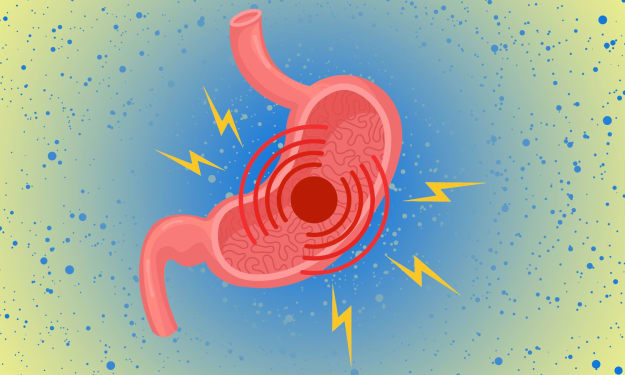Cleaning For The Mind, Body, And Soul
How keeping your home clean can benefit you physically, mentally, and spiritually

For many people, doing a full home clean is a never-ending, tedious chore that they dread doing each week. But it doesn't have to be that way.
Cleaning has many benefits for your physical and mental health that can help you live a happier, more organised, and more fulfilling lifestyle.
Fitting a cleaning regime into your daily life may seem like just another thing to add to your ‘to do’ list, but if you fully invest in it, and find fun ways of incorporating it into your schedule, you may find that you enjoy cleaning your home more than you might expect!
Cleaning is satisfying, works as a mindful distraction to alleviate stress or anxiety, helps you reduce your exposure to disease and bacteria, and fosters a cleaner, healthier lifestyle.
Keeping up a regular cleaning routine once or twice a week reduces the amount you need to do in one ‘session’, making it more manageable and less overwhelming to approach.
But when you put cleaning off, however, you are likely to end up with a large amount that needs doing all at once, and you may find it more difficult to keep things like clothes and bedding in a sanitary condition.

‘But Cleaning Is Boring And I’m Busy!’
There are many ways that you can make cleaning more interesting and help it to fit around your lifestyle.
First, identify what you do enjoy.
If you like music, listening to a song with a strong beat is a great way to keep your momentum up and your mind distracted - this can help prevent you from getting bored. Alternatively, you could try listening to an audiobook, or perhaps the radio, to engage your brain.
If you are spiritual or religious, or if you engage in meditative practices, you may wish to incorporate cleaning into these to cleanse your home and body of negative energies.
You might also wish to meditate or pray before your cleaning, light incense while you work, and use crystals such as selenite or tourmaline to help purify your space.
Ritual cleaning is a part of many religious practices throughout the world, including Christianity, Islam, and Hinduism, as well as pagan and spiritualist practices.
If none of these appeal to you and you prefer a more practical approach, you can choose to put the television on, clean at the same time as doing DIY, or just clean as you go about your usual household routine!
Next, identify the limitations and requirements of your lifestyle.
If you are a creative type of person, you may find you are prone to creating a lot of mess. While this is not uncommon among creative individuals, you might find that your house or flat becoming messy gives you less room for your usual activities, and that you get stressed when trying to work surrounded by the clutter.
If you have a more logic or strategy-based mindset, you will likely have less clutter - but working long hours may make it difficult to commit to a thorough cleaning routine. So instead of doing one big clean at the end of the week, why not just do one or two small cleaning jobs each day before work?
This gets your housework out of the way, leaving you free to enjoy your ‘down time’.
Plus, after a week of cleaning a bit every day, you’ll avoid having to do it at the weekend!

How To Structure A Cleaning Schedule And Stay On Top Of It
If you want to clean your home, but the thought of doing it is too overwhelming, the best way to approach the job is simply by making a list of things to clean. This will help you to identify what needs doing, and how and when to do it.
The trick is to not make your cleaning sessions too long, and to only commit to two or three tasks per session. If you have an overly long cleaning session, you are likely to tire yourself out or become stressed, which will put you off doing it next time around.
Instead, try to schedule in 2-3 longer cleaning sessions a week, with certain jobs (such as washing up, cleaning the kitchen etc.) being done daily or every other day.
‘But I’m Just Not Motivated To Do It!’
If you struggle with motivating yourself - particularly if you suffer from Attention Deficit Disorder (ADD) or depression - you might choose to prompt yourself to clean your home using a diary, your phone calendar, or one of the many apps on the market.
Alternatively, if you have a reliable support network, you could ask them to nudge you when you are finding it difficult to maintain a self-care routine.
Another good way of giving yourself some motivation is to allow yourself a reward each time you do a clean.
Perhaps you can eat a bar of chocolate when you've completed a week's worth of cleaning? Or maybe you could be very naughty and have a glass or two of wine when you’ve finished every cleaning job on your list?
Whatever you find motivates you, embrace it, and use it to your advantage!
Clean Home, Clean Body
There are numerous ways that cleaning your home helps to keep your body in tiptop condition!
Firstly, cleaning is a great way of integrating physical exercise into your daily life.
Moving furniture, hoovering, mopping, making the bed, and many other of the usual cleaning activities are effective ways of burning calories, with up to 100 calories being burned in just half an hour! Moving heavy equipment and furniture will also help to keep your muscles strong, lean, and defined.
Cleaning can help you eat healthier too! Studies have found that people eat more food, and more unhealthy foods, when they are under stress, and living in a dirty and untidy home increases cortisol levels - and therefore, stress.
Additionally, a 2013 study found that people who worked in a tidy and organised space were more likely to choose an apple over a chocolate bar when picking something to eat. Therefore, the cleaner your house is, the less stressed you are, and the more healthily you eat!
Plus, if you struggle with insomnia your messy bedroom might just be the culprit, as a survey by the National Sleep Foundation found that making your bed in the morning could boost your night’s sleep by as much as 20%.
Regularly cleaning your home also means you will not get ill so easily, as it helps to eliminate nasty viruses, bacteria, pollen, dust, and fungi spores which can trigger respiratory conditions such as asthma and allergies.
The best places to start? Mymove.com identified the nine germiest places in your home, including dish sponges, the kitchen sink, toothbrush holders, pet bowls, and bathroom taps, among others.

The Mental Health Benefits Of Keeping A Clean Home
Keeping your home clean is a simple way to reduce your stress levels.
Firstly, it helps you to stay more organised, as you will know where everything you need is. No more last-minute rushes in the morning trying to locate those important files before work! This will help to keep your cortisol (which is a stress hormone) levels low and under control.
Next, clutter makes us stressed because it overloads our brains with excessive visual stimuli. This contributes to what is known as sensory overload and it’s a particular problem for people with ADD, autism, and certain mental health disorders that can cause high levels of stress as a result of extraneous stimulation.
Clutter also creates feelings of guilt and anxiety from observing jobs that haven’t yet been done. It is hard to push aside the sense of being overwhelmed when there is evidence of uncompleted tasks right in front of you.
Another aspect of mental health that clutter affects is concentration. When we are excessively stimulated, our brains work overtime to try and process the extra visual information. This results in not being able to focus on other things - like work, for example.
Feelings of being overwhelmed by clutter can also promote avoidant coping mechanisms, such as bingeing on junk food or watching television.
All this means that by tidying your home, you can also achieve a tidier, more peaceful state of mind!
For instance, in 2011, researchers using functional magnetic resonance imaging - among other biological measurements - found that clearing clutter from the immediate environment resulted in better focus, improved information processing, and higher productivity for the participants.
So by staying on top of clutter, you can help yourself to be more productive, have more energy, and live a healthier lifestyle.

Benefits For Your Home
Aside from keeping your home more clean and tidy, there are other benefits for your house that can be achieved from regular cleaning.
For example, if you clean regularly, you are less likely to find serious problems with your home - such as black mould and rot, for example - further down the line. Cleaning stains immediately helps them to stop ‘setting in’ and makes them easier to remove.
Regular cleaning also helps to prolong the life of carpets, furniture, and more, leading to less frequent spending on purchasing and maintaining furnishings.
Benefits For Friends, Family, Loved Ones, And Pets
Doing your share of the cleaning and tidying helps to improve relationships too!
A study by Yelp recently found that as many as 80% of households argue about cleaning, with 20% reporting that it was a regular cause of conflict. Keeping your home clean can help to reduce these arguments - but it’s not quite that simple!
Many arguments aren’t about the cleaning itself - but how to do it, and who should do it. Cleaning is often a way that gender roles are expressed, so women who do most of the cleaning may feel unsupported, while men may feel they are not doing enough to keep their partners happy.
By creating a regular routine of who does which job, you can help to reduce gender-based arguments, and communicate more effectively with your partner. You may even decide to set a ‘date night’ after cleaning day, so you can reward yourselves and spend time together at the same time!
Also, if you have young children, animals, or elderly relatives with a high falls risk in your household, clutter can pose some immediate dangers to health. But by regularly cleaning and maintaining your living space, you can keep your loved ones safe by reducing the likelihood of accidents occurring around the home.

Benefits For Society And The Environment
Tidying your house can even help wider society! By regularly decluttering your home, you can give to charity shops or list items on websites such as Freecycle.com that will help you offer the items to people who have more need of them than yourself.
This also helps the environment by ensuring that items you no longer need are reused instead of being thrown away. You may also find that you enjoy the creative side of repurposing old items into useful new household equipment and decorations!
Why Keep Up A Cleaning Routine?
Cleaning benefits you, your home, the environment, general society, and your personal relationships. So surely the question should be, why not get your cleaning routines properly organised, so you can see how much better they can help your life to be?
Sources
https://www.sleepfoundation.org/
https://www.3benefitsof.com/cleaning-your-home-regularly/
https://www.health.com/weight-loss/10-chores-that-burn-100-calories
https://www.mymove.com/cleaning/guides/nasty-germiest-places-home/
https://www.mymove.com/heating-cooling/guides/health-benefits-of-a-clean-home/
This article was originally published here.
About the Creator
Alexander Belsey
B2B magazine editor and digital marketer. I write about business, politics, economics, and wellbeing - sometimes all at once.






Comments
There are no comments for this story
Be the first to respond and start the conversation.